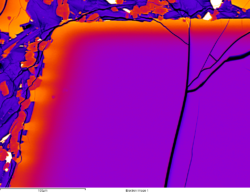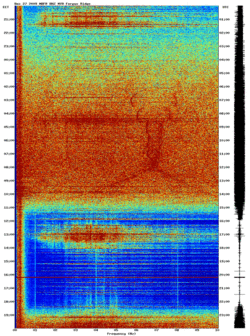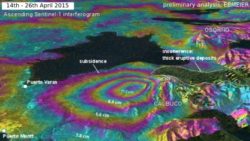Workshops
Workshop 1: PhD writing and publishing for graduate students
Workshop 1: PhD writing and how to get your paper published
Led by: Dr Olga Degtyareva (olgadegtyareva@gmail.com) Productivity for Scientists Ltd. and Paul Cumine, publisher of the Journal of Volcanology and Geothermal Research, Elsevier
Venue: Leeds City Museum, Denny Room
Time: 2-5 pm Friday 5 January 2018
Places available: 50
Cost: £20
Do you need to write up your thesis or research paper but keep getting stuck with it? You are not alone, many researchers struggle.
Even when we know we should be writing we find it difficult to actually sit down to write. Instead we get ourselves busy with all the other things we have on our plate. When we finally find time for writing, we struggle to make a start. We worry that we have not read enough, that the supervisor won't like it, that it will take too long and that it won't be good enough. And then we don't write. Week after week (and sometimes months and years) go by and that abstract, paper or thesis is still not written.
Sound familiar? Well, in this workshop we are going to discuss these exact challenges and the strategies to overcome procrastination and to start writing. You'll get step-by-step guidance so that you too can start writing, grow content fast and stay on track until completion. Come to this workshop to get the strategies and motivation to start writing, get your questions answered and actually get some writing done.
The second half of this workshop, arranged by Elsevier, will provide an introduction to journal publishing with a focus on the peer-review process and how to prepare your manuscript for submission. It will cover the nuts and bolts of writing an article, with tips on how to prepare a manuscript, how to choose the right journal, and suggestions on how to deal with comments from reviewers. There will also be the chance to discuss matters such as author rights, open access publishing, publication ethics, getting your paper noticed, and impact metrics.
Workshop 2: An introduction to diffusion modelling in crystal systems: volcanic timescale recovery
Led by:  Dr Dan Morgan, SEE, University of Leeds (d.j.morgan@leeds.ac.uk)
Dr Dan Morgan, SEE, University of Leeds (d.j.morgan@leeds.ac.uk)
Venue: School of Earth and Environment, Earth Visualisation Laboratory (level 10)
Time: 9 am - 4 pm Saturday 6 January 2018
Places available: 20
Cost: Free
This short workshop provides an introduction to modelling diffusion profiles in volcanic phenocrysts, via a combination of recorded lectures and hands-on workshop sessions. It is intended for those who have not undertaken such a course before and includes the rationale, basic methods and simple modelling, and might be suitable preparation for a more intensive course (such as the annual courses held in Bochum). Some course materials will (hopefully) be made available as interactive PDF’s before the workshop, giving time to ask questions. The workshop itself will cover:
- Defining, building and executing simple models based on analytical solutions,
- Complexities such as anisotropy and composition dependence
- Generation and identification of “false positives”, integration with other data sets, and
calculation of uncertainties.
Workshop 3: Volcano Seismology
 Led by: Professor Jurgen Neuberg, SEE, University of Leeds (j.neuberg@leeds.ac.uk)
Led by: Professor Jurgen Neuberg, SEE, University of Leeds (j.neuberg@leeds.ac.uk)
Venue: School of Earth and Environment, 9.162B
Time: 9 am - 4 pm Saturday 6 January 2018
Places Available: 30
Cost: Free
Description:
This one-day workshop will focus on two types of seismic signal that are particularly important in volcanic environments: Very Long Period seismic signals (VLPs) and low-frequency (or long-period) volcanic earthquakes (LPs). These transient signals are thought to be generated by magma or gas movement and fill the gap between deformation monitoring and classic (short-period) seismic monitoring and can shed light on magma properties and conduit geometry as well as playing a role in the forecasting of dome collapse and eruptions. Although the growing availability of broadband seismometers makes it now possible to detect ground motion with periods of up to 1000s, such signals are often neglected because of the additional processing required. The workshop is suitable for post-graduate level non-seismologists, however, a basic mathematical understanding of spectral analysis, differentiation and integration would be helpful. The workshop itself will cover:
- A brief theoretical introduction to VLP and LP seismic signals,
- Hands-on computer exercises utilising the processing steps needed to detect and identify VLP and LP events,
- Further exploration of the character of these seismic signals and their interpretation.
Workshop 4: InSAR 101: Interpreting interferograms for volcanologists
 Led by: Dr Susi Ebmeier, SEE, University of Leeds (s.k.ebmeier@leeds.ac.uk)
Led by: Dr Susi Ebmeier, SEE, University of Leeds (s.k.ebmeier@leeds.ac.uk)
Venue: School of Earth and Environment, 9.162A
Time: 9 am - 4 pm Saturday 6 January 2018
Places Available: 10
Cost: Free
This workshop is suitable for those who have never used InSAR before but are interested in understanding the method better, either to make use of new global displacement data, or simply to examine interferograms that other people have created with a critical insight.
This workshop will include:
- Introductory level lectures on how InSAR works, how it is used for various applications in volcanology and how to interpret interferograms.
- Practical exercises (1) introducing how to find and download InSAR data to analyse
